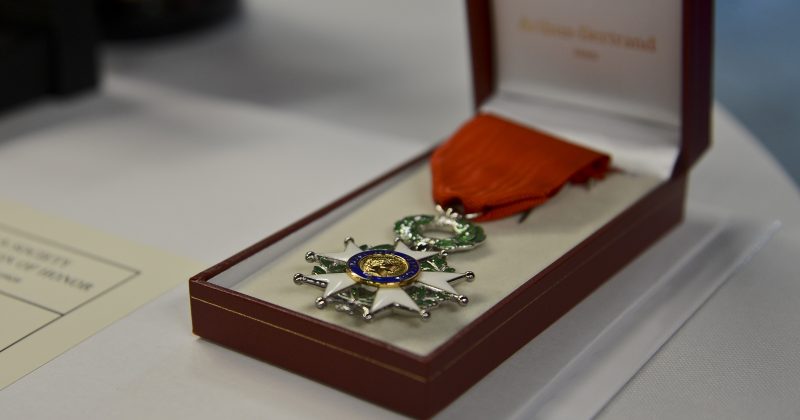Henry Hardy received the Chevalier Legion d’Honneur, the highest military or civil honor in France, for his service in the artillery during D-Day in WWII.
The Member of Parliament for his local region officially presented the award on behalf of the French government. The secretary of the British Legion and Hardy’s daughter were also present.
“I have been thinking of this for some time,” Hardy said. “I couldn’t sleep because I was reminiscing, and thinking how it was, also about the men who didn’t make it.” He poignantly added, “The medal was for them as well.”
Hardy remembered the terrible scene as the Allied soldiers engaged the German occupiers during the largest seaborne invasion in history. “It was Hell. Trying to get to shore, we were lucky we had big guns, but people were slaughtered on the beaches. The actual water was running with blood.” Some 4,400 Allied soldiers were killed during the operation, and the total number of casualties numbered at least 10,000. German casualties have been estimated at somewhere between 4000 and 9000 men.
The Germans eventually were pushed out of France and back to Germany, at which point Hardy and the artillery were no longer needed. “I only got as far as the Rhine. Then they said they didn’t need artillery, they only needed infantry to mop up pockets of resistance.”
He served a total of ten years. He served in Palestine, Greece, Crete, Egypt, North Africa, and northern Europe. His fondest memories are of his life before the war, including the time he met an eleven-year-old future Queen Elizabeth II. “I met the Queen on one occasion. She came round and visited us with her husband, and the two little princesses were running around… chatting with the soldiers.” He enjoyed serving as a peacetime soldier, saying, “You weren’t paid very much, but you were free in a way.”
Hardy was born in Lincolnshire as one of ten siblings, where he worked on the family pig farm. When he turned 18, he left the farm and joined the army. In 1944 he was married, just two months after he met his wife, and he left the army in 1946. He went on to have two children and spent the rest of his working life as a carpenter and joiner. Following his retirement, his main hobbies include bird watching, gardening and writing war memoirs.
